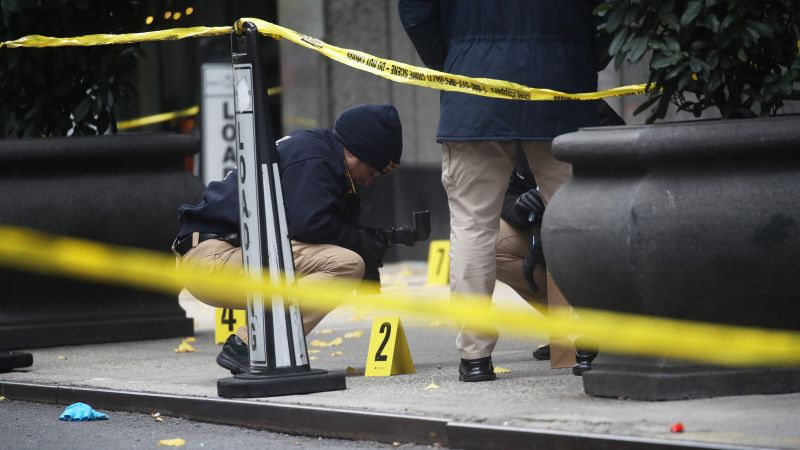
He cut off some loved ones for months. Now, suspect Luigi Mangione faces mounting evidence in health care CEO’s killing
CNN
Marked shell casings from the assassination scene match the gun found on the suspect. His fingerprints match some key items investigators found nearby. And he was arrested this week – after going silent from his mom and friends for months – with a fake ID and a handwritten “claim of responsibility” referencing the crime site.
Marked shell casings from the assassination scene match the gun found on the suspect. His fingerprints match some key items investigators found nearby. And he was arrested this week – after going silent from his mom and friends for months – with a fake ID and a handwritten “claim of responsibility” referencing the crime site. These details and others, shared by law enforcement and people who know suspect Luigi Mangione, have been mounting since last week’s daylight killing of UnitedHealthcare CEO Brian Thompson on a busy sidewalk in Midtown Manhattan. After a five-day, multi-state manhunt that leaned heavily on surveillance images and pleas for the public’s help, Mangione, 26, is now charged in the case with murder after a tip led to his arrest Monday at a McDonald’s nearly 200 miles from where the brazen homicide unfolded. Mangione’s lawyer has denied his client’s involvement in the December 4 killing and anticipates he will plead not guilty to the murder and other charges in New York, as well as to charges related to the 3D-printed gun and fake ID in Pennsylvania, where he was caught and is being held without bond. Defense attorney Thomas Dickey on Wednesday also dismissed the ballistics and fingerprint evidence revealed publicly hours earlier, saying he wants to examine it himself. “Those two sciences, in and of themselves, have come under some criticism in the past, relative to their credibility, their truthfulness, their accuracy, however you want to do it,” Dickey said on CNN’s “Erin Burnett OutFront.”

The US’ key anti-ISIS partners in Syria said on Wednesday that the ISIS detention facilities they guard are coming under attack and that they have been forced to halt anti-ISIS operations, complicating the US military’s efforts to prevent the terror group from reconstituting following the ouster of Syrian President Bashar al-Assad.










